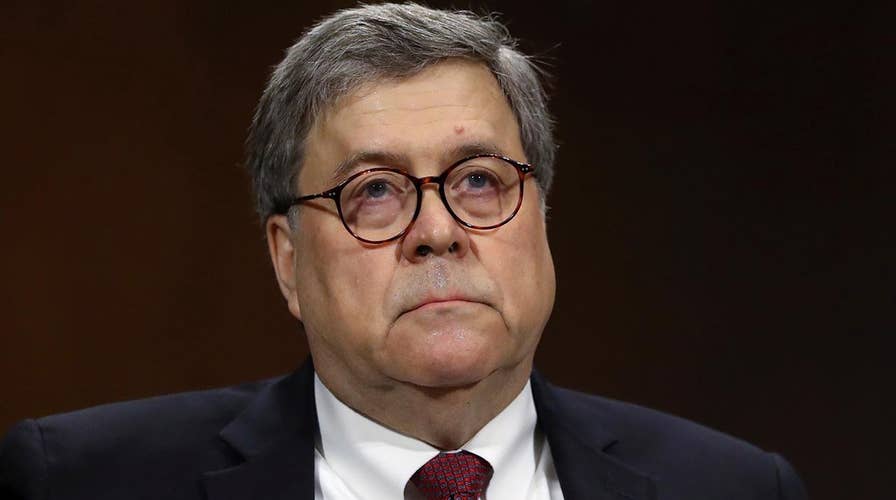Attorney General Barr acknowledges the DOJ has 'multiple criminal leak investigations underway'
Republican Senator Chuck Grassley asks Attorney General William Barr about leaks to the media during a Senate Judiciary Committee hearing.
While the predictable news conference with Special Counsel Robert Mueller made headlines this week for repeating what we already knew, a bigger story from the Department of Justice broke that got far too little attention.
In a Wednesday report released by the Inspector General for the Department of Justice, we learned that the OIG was able to identify a former deputy assistant director at the FBI who violated the law by leaking sealed court documents to the media, engaging in repeated unauthorized contacts with journalists, and accepting a gift from the media.
BARR SAYS DOJ HAS 'MULTIPLE LEAK' PROBES UNDERWAY
We already knew leaking and unauthorized media contacts were a cultural and systemic problem at the FBI. A June 2018 OIG Report revealed the extent of the practice and provided a graphic illustration:
Although FBI policy strictly limits the employees who are authorized to speak to the media, we found that this policy appeared to be widely ignored during the period we reviewed. We identified numerous FBI employees, at all levels of the organization and with no official reason to be in contact with the media, who were nevertheless in frequent contact with reporters. The large number of FBI employees who were in contact with journalists during this time period impacted our ability to identify the sources of leaks.

But this week, we learned the OIG actually has identified one of the sources and suggested the allegations were supported by "a preponderance of evidence." Though that is certainly newsworthy, the real news was the Justice Department response. Officials mysteriously, though not surprisingly, declined to prosecute one of their own.
Creating new laws for theJustice Department to ignore does not solve the problem. But Congress can be part of the solution through the oversight function.
These are serious allegations against a very senior FBI official. How can the department not take action when there is direct evidence in hand? This is someone who deliberately and illegally disclosed sensitive information from sealed court filings. If the Justice Department looks the other way, what message does that send to the rest of the FBI? What better way to signal to the entire federal law enforcement apparatus that laws and rules are optional?
Unfortunately, we routinely have people at DOJ who put their thumb on the scale to impact politics. It's obviously part of the culture fostered by the two previous FBI directors, Robert Mueller and James Comey. They have both shown political animus and bias toward President Trump.
Comey himself released sealed information, likely for a political purposes. Mueller this week left no doubt of his own animus toward the president. No wonder the American people have lost faith in our federal law enforcement.
Not only is there no penalty for violating the law, there may actually be an incentive for doing so. For leakers with partisan motivations, the chance to impact an election may outweigh the risk of an unlikely prosecution.
If we want to instill confidence in the system, we need to be able to demonstrate that when somebody violates rules and laws within the FBI, they, too, will be prosecuted and held accountable.
CLICK HERE TO GET THE FOX NEWS APP
There is little Congress can do legislatively. Leaking is already against the law. Creating new laws for the Justice Department to ignore does not solve the problem. But Congress can be part of the solution through the oversight function.
Senate Judiciary Committee Chairman Lindsey Graham, R-S.C., should call on the Justice Department to answer to the American people for this failure to prosecute. Members of the Judiciary Committee in the House and Senate should question Inspector General Michael Horowitz about his findings and demand answers from the DOJ about the failure to prosecute. There may be no better way to get the answers the American people deserve.









































